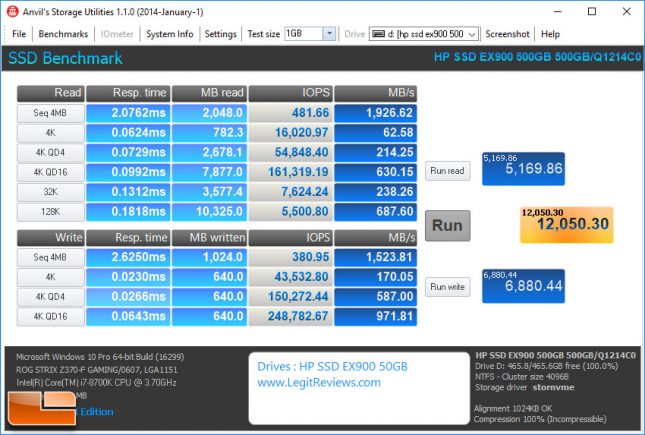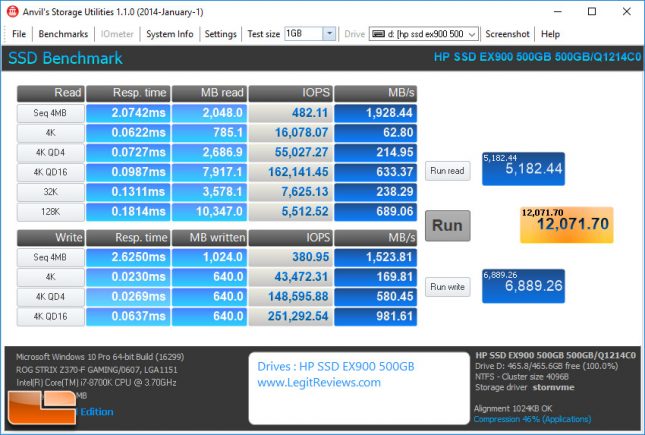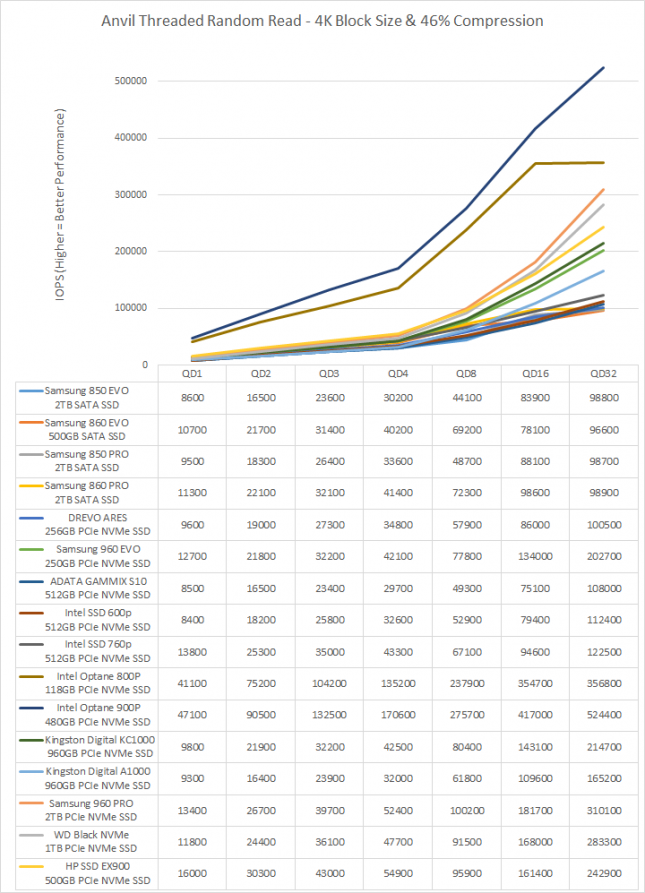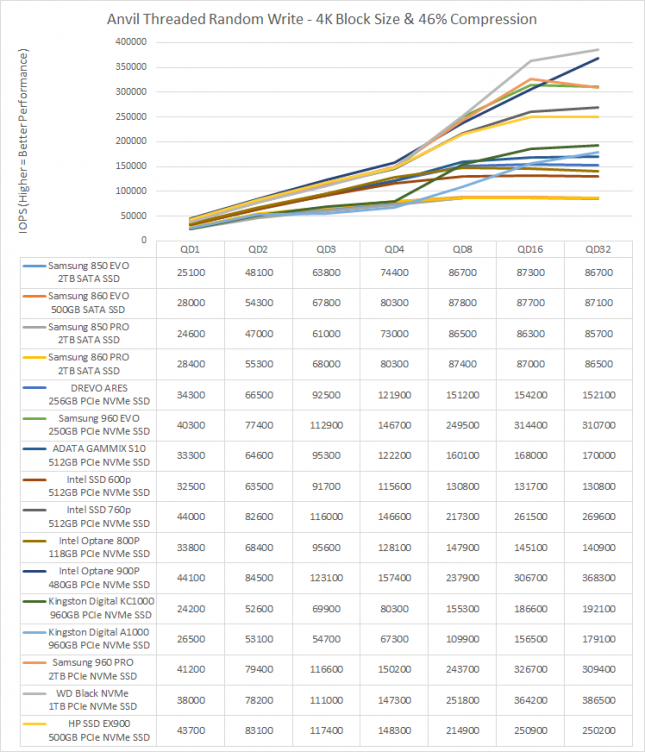HP EX900 500GB M.2 PCIe NVMe SSD Review
Anvil Storage Utilities
Anvil Storage Utilities 1.1.0
Along with the move to a new platform, we decided to make a change in one of the benchmarks. There’s a relatively new benchmark called Anvil Storage Utilities that is in beta but close to production. It’s a very powerful tool that measures performance through a variety of tests which can be customized. Since some of the tests more or less duplicate what we get from other benchmarks we use already, we decided to use the IOPS (Input/Output Operations Per Second) testing on 4kb file sizes at a queue depth of 1, 4, 8, 16, 32, 64 and 128. IOPS performance is something SSD makers tout quite a bit but we generally don’t do a lot of IOPS testing because frankly a lot of users can’t relate to IOPS metrics as well and it tends to be more meaningful to the enterprise/server crowd. Still, it is another performance indicator with relevance and while some drives post good MB/s numbers, their IOPS scores aren’t always commensurate which this test will prove out.
Anvil SSD Benchmark with 100% Compression (incompressible data):
Benchmark Results: The Anvil SSD Benchmark showed that with 100% compression (incompressible data) the HP SSD EX900 M.2 500GB drive had an overall score of 12,050.30 points. The drive topped out at 1,926.62 MB/s read and 1,523.81 MB/s write speeds on the sequential performance test with 4MB file sizes.
Anvil SSD Applications Benchmark at 46% Compression:
Benchmark Results: With the compression at 46% to help mimic real world applications better we found the overall score dropped to 12,071.70 points.
Benchmark Results: When it comes to queue depth performance we found solid numbers at the most used QD1-4 range and respectable scores at the higher QDs that home users seldom see. The fact that we were pulling off nearly 250k IOPS at QD32 was impressive for a drive that was rated at just 120K IOPS.
Benchmark Results: When it came to 4K Random Write performance, the HP SSD EX900 M.2 500GB drive pulled off impressive numbers once again and the QD1 numbers are among the highest that we have ever seen.




